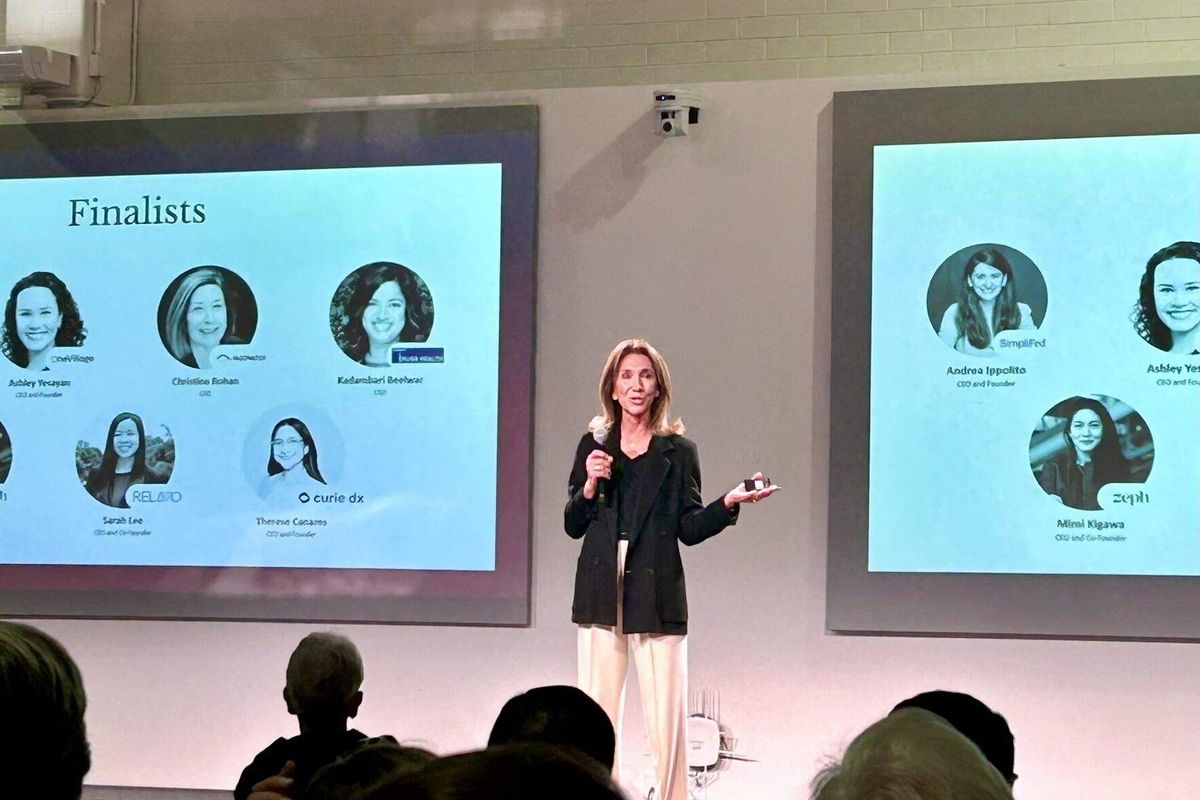Editor's note: Houston’s innovation calendar is packed this November, with opportunities to connect across climatetech, health care and entrepreneurship. From Greentown Labs’ flagship summit and veteran-led showcases to discussions on medical innovation and startup growth, here's what not to miss and how to register. Please note: this article may be updated to include additional event listings.
Nov. 4 – Greentown Climatetech Summit
Greentown Labs' Climatetech Summit Houston will bring together philanthropists, executives and innovators in the energy transition space. Expect to hear from John Arnold, co-founder and co-chair of Arnold Ventures, and Greentown CEO Georgina Campbell Flatter, who will participate in the day-long event’s keynote fireside chat, along with remarks from Houston Mayor John Whitmire, a course led by TEX-E Executive Director Sandy Guitar and more. Ten Greentown Labs startups will present pitches, and attendees will also be able to meet founders and Greentown members during the afternoon startup showcase.
This event is Tuesday, Nov. 4, from 8 a.m.-4:30 p.m. at Greentown Labs. A networking reception follows from 5-7:30 p.m. at Axelrad Houston. Learn more here.
Nov. 11 – Veterans & Visionaries
Houston Veteran Network will celebrate the entrepreneurial spirit of veterans at its Veterans & Visionaries event. Veteran business owners will have the opportunity to showcase their businesses, connect with investors and participate in speed networking.
This event is Tuesday, Nov. 11, from 2-7 p.m. at the Ion. Find more information here.
Nov. 12 – Energy Drone and Robotics Forum
The Energy Drone + Robotics Coalition will offer a chance for industry leaders, operators and engineers to connect. Attendees will explore real-world uses, hear lessons from successful deployments, and gain practical insights and tools for scaling through various workshops, keynote addresses, Q&As and more.
This event is Wednesday, Nov. 12, from 8 a.m.-5:30 p.m. at the Ion. A Bots & Brews / Industrial AI Connect Reception will be held at Second Daught from 5:30-7:30 p.m. Find more information here.
Nov. 12 – TMC Envision 2025: Showcasing Healthcare Innovation
Celebrate 10 years of TMC Innovation at Envision, which shines a light on how TMC’s health tech companies are shaping the future. The event will feature talks from TMC’s Devin Dunn, Jason Sakamoto and Tom Luby that will focus on hospital innovation, health care policies, Texas-specific funding and regulatory dynamics and more.
This event is Wednesday, Nov. 12, from 3:30-6:30 p.m. at TMC Innovation Factory. Find more information here.
Nov. 13 — 2025 Houston Innovation Awards
Join InnovationMap at Greentown Labs on Nov. 13 for the fifth annual Houston Innovation Awards. Our annual celebration of all things Houston innovation offers an exclusive opportunity to network with leaders in the innovation ecosystem and culminates in the awards ceremony, where this year's winners across 10 prestigious categories will be unveiled. Individual tickets and corporate 10-packs with reserved seating are still available.
This event is Thursday, Nov. 13 at 7 p.m. at Greentown Labs. Get your tickets here.
Nov. 13 – Houston Methodist Leadership Speaker series
Head to the Houston Methodist Tech Hub at Ion to hear the latest installment of the Houston Methodist Leadership Speaker Series. The month’s event will feature Dr. Shlomit Schaal, executive vice president and chief physician executive at Houston Methodist. She is also the president and CEO of the Houston Methodist Physician Organization. Schaal will focus on physician group innovation.
This event is Thursday, Nov. 13, from 4:45-6 p.m. at the Ion. Find more information here.
Nov. 18 – Rice Customer-based Strategy Symposium
Rice University’s Jones Graduate School of Business will present this recurring forum for exchanging innovative ideas on customer-centered strategy planning and execution. The symposium features peer-reviewed research from leading academics with industry trends and insights from executives. Hear from Jones School Dean Peter Rodriguez, Harris County Sheriff Ed Gonzalez, Laura Lopez, SVP of marketing, communications and public relations at Houston Methodist; Farid Virani, CEO of Prime Communications; and several Rice MBA graduates and executives.
This event is Tuesday, Nov. 18, 2025, from 7:30 a.m.-3:00 p.m. at the Ion. Learn more here.
Nov. 20 – Houston Startup Speedrun
Wade Pinder, founder of Product Houston, will host the Houston Startup Speedrun. This intensive and fast-paced program is designed to provide early-stage founders and aspiring entrepreneurs with a comprehensive understanding of the “Startup Founder's Journey” and the Houston startup ecosystem. The event is broken up into 10 consecutive 50-minute sessions, including topics such as “Creating a Compelling Business Plan,” “Operations and Scaling” and others.
This event is Thursday, Nov. 20, from 9 a.m.-7 p.m. at the Ion. Find more information here.
Nov. 20 – State of the Texas Medical Center
The Greater Houston Partnership will present the State of the Texas Medical Center. Hear from William F. McKeon, president and CEO of TMC, and GHP president and CEO Steve Kean as they discuss “the tremendous progress happening in health care delivery and life sciences in the world’s largest medical center.”
This event is Thursday, Nov. 20, from 4-6:30 p.m. at Helix Park. Find more information here.








